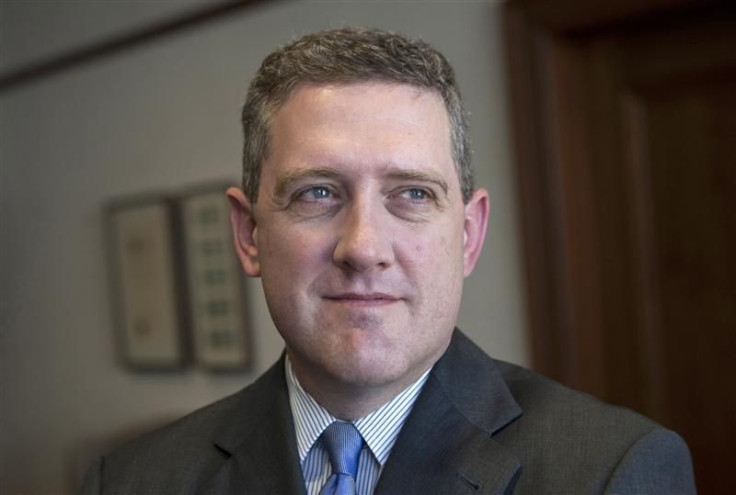QE3 only needed if economy deteriorates: Fed's Bullard

The Federal Reserve should only embark on a third round of large-scale bond purchases if the U.S. economy deteriorates and inflation drops, and we are not there yet, a top Fed official said on Friday.
St. Louis Fed President James Bullard - who added on CNBC television that he would be willing to adopt a single Fed mandate - said now is a natural time for the central bank to pause and await more data given the economy and labor market are looking better.
With the better data, the super easy policy already in place ... I think we've got a lot on the table here so this is a normal situation to sit back, get more data and try to collect our thoughts about the main things that are affecting the economy right now, Bullard said.
Bullard, a policy centrist who does not have a vote this year on the Fed's policy-setting panel, said a third round of quantitative easing, or QE3, is a potent weapon that the Fed can use to help spur the recovery.
I wouldn't take QE3 off the table forever, he said.
But we should use it only if the economy deteriorates and especially if inflation numbers come in below our (2 percent) inflation target and start to drift down to more disinflation or in deflation. So we're not in that situation now.
The Fed in late 2008 slashed interest rates to near zero and has since bought $2.3 trillion in long-term securities in an unprecedented drive to spur growth and revive the economy after the worst recession in decades.
Chairman Ben Bernanke said this month the economy still needs plenty of support and defended the Fed's aggressive policies to ratchet down unemployment, which has fallen in recent months but is still high at 8.3 percent.
On Thursday, Republican Rep. Kevin Brady, vice chairman of the Joint Economic Committee, said he will introduce legislation to focus the U.S. central bank on a single mandate to fight inflation, a move that would cut the employment side of the Fed's current dual mandate.
Bullard said a single mandate would clarify what a central bank can do in the long run, adding: I would be willing to go to a single mandate.
It's OK to go to the single mandate because I think the consensus that we had, especially with the Greenspan Fed under the dual mandate, that what you were doing was providing stable prices to get the best employment outcomes that you could get, he said.
(Reporting by Jonathan Spicer; editing by Theodore d'Afflisio)
© Copyright Thomson Reuters {{Year}}. All rights reserved.





















